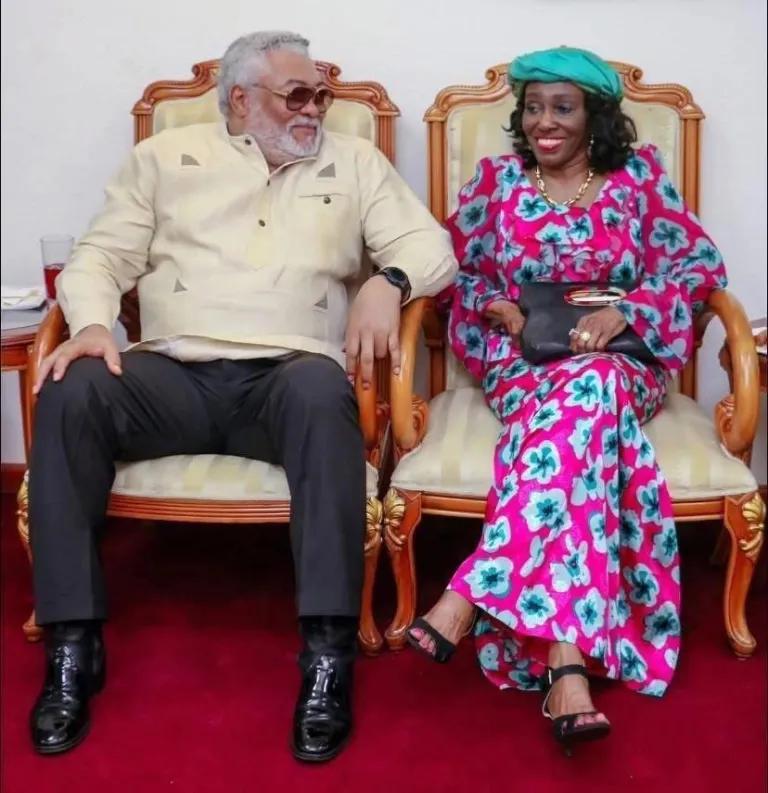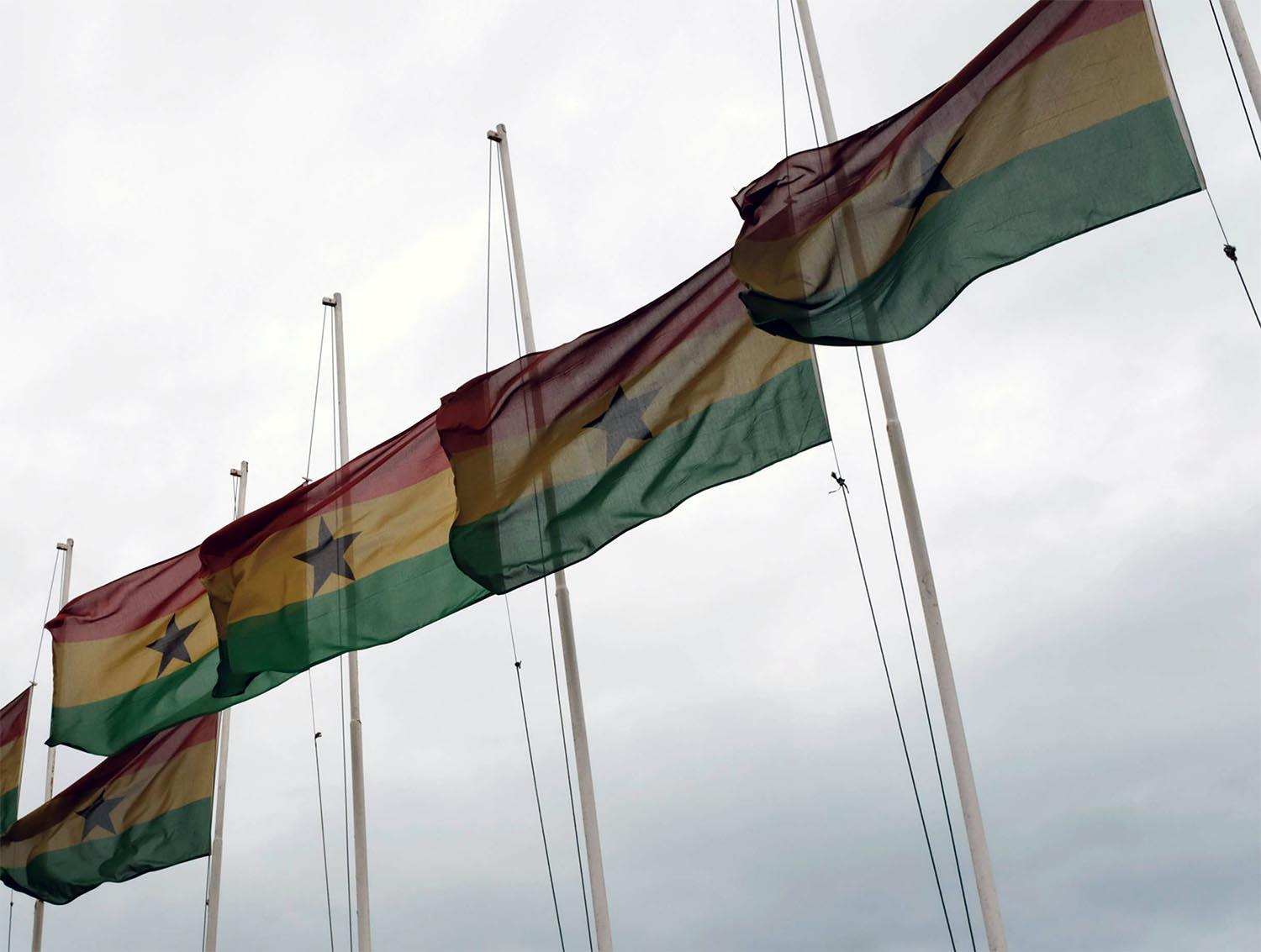President John Dramani Mahama has declared three days of national mourning in memory of the late former First Lady, Nana Konadu Agyeman-Rawlings, who passed away on Thursday, October 23, 2025, at the Ridge Hospital in Accra. She was 76 years old.
The official mourning period, which begins on Friday, October 24, will continue through Sunday, October 26, during which all national flags across the country and at Ghana’s diplomatic missions abroad will fly at half-mast. The directive, according to a statement signed by Felix Kwakye Ofosu, Minister for Government Communications and Presidential Spokesperson, reflects the nation’s collective grief and respect for the late First Lady’s lifetime of public service.
The statement described Mrs. Agyeman-Rawlings as a “dedicated and committed servant of the nation,” lauding her for decades of advocacy in women’s empowerment, social development, and child welfare.
As founder of the 31st December Women’s Movement, she played a transformative role in mobilising rural women, improving access to healthcare, and advancing literacy and microfinance initiatives. The movement became one of Ghana’s most influential grassroots organisations during the 1980s and 1990s, supporting thousands of women to start small businesses and gain political voice.
Government officials, political leaders, and civil society organisations have since paid tribute to her memory. The Ministry of Gender, Children and Social Protection described her as “a pioneering advocate for gender equity who inspired generations of Ghanaian women to take leadership roles in public life.”

Nana Konadu Agyeman-Rawlings, wife of Ghana’s late former President Jerry John Rawlings, was also a key political figure in her own right. She served as Ghana’s First Lady from 1982 to 2001, during which she championed progressive reforms in education, maternal health, and family planning.
In 2012, she became the first woman in Ghana’s history to lead a political party into a presidential election, as founder and flagbearer of the National Democratic Party (NDP). Her campaign highlighted issues of integrity in governance and inclusivity in leadership — themes that continue to resonate in Ghana’s political discourse today.
Despite the political controversies that surrounded parts of her career, Mrs. Agyeman-Rawlings remained widely respected for her resilience, leadership, and contributions to national development.
Across Ghana, tributes have poured in from political parties, traditional leaders, and international figures. The opposition New Patriotic Party (NPP) described her passing as “a great loss to Ghana’s democratic history,” while the National Democratic Congress (NDC), the party she helped shape in its formative years, praised her “indelible contribution to Ghana’s social transformation.”
Social media platforms have been flooded with messages of condolence and reflections on her life’s work. Many Ghanaians have recalled her efforts to promote women’s cooperatives and rural enterprise development — initiatives that, according to the Ghana Statistical Service, helped reduce the gender poverty gap by over 15 percent during the 1990s.
Her death, analysts note, marks the end of an era in Ghana’s political history, as she was among the last surviving figures from the country’s revolutionary generation who transitioned into democratic leadership.

Beyond her political influence, Mrs. Agyeman-Rawlings was recognised across Africa for her role in shaping policy dialogue on women’s participation in governance. She collaborated with several international organisations, including the United Nations and the Organisation of African First Ladies for Development (OAFLAD), to promote gender-inclusive policy frameworks.
Her work earned her numerous honours, including awards from the African Women Development Fund (AWDF) and the International Federation of Women Lawyers (FIDA).
For many Ghanaian women in politics and civil society, her example continues to inspire participation and leadership. In an interview, Professor Audrey Gadzekpo of the University of Ghana described her as “a fierce and fearless advocate who helped redefine the possibilities for women in public life.”
The government’s decision to lower national flags, a symbolic act of collective respect, underscores the depth of loss felt across the country. In Ghana, the gesture is traditionally reserved for leaders who have made significant contributions to statehood and national progress.

President Mahama, in his message of condolence, extended sympathy to the Rawlings family, noting that “Nana Konadu’s legacy will forever remain a guiding light for those who believe in equality, service, and empowerment.”
Funeral arrangements are expected to be announced in the coming days by the family in consultation with the state.
Nana Konadu Agyeman-Rawlings leaves behind four children, including Member of Parliament Zanetor Agyeman-Rawlings, and a legacy that continues to influence Ghana’s socio-political evolution. Her passing invites reflection on the role of women in leadership and the unfinished business of gender equality in national development.
As the flags fly at half-mast, Ghana stands united in remembrance — not only of a former First Lady but of a woman who redefined what it meant to lead with conviction, courage, and compassion.
Read also: About Late First Lady Nana Konadu Agyeman-Rawlings, Fearless Leadership

